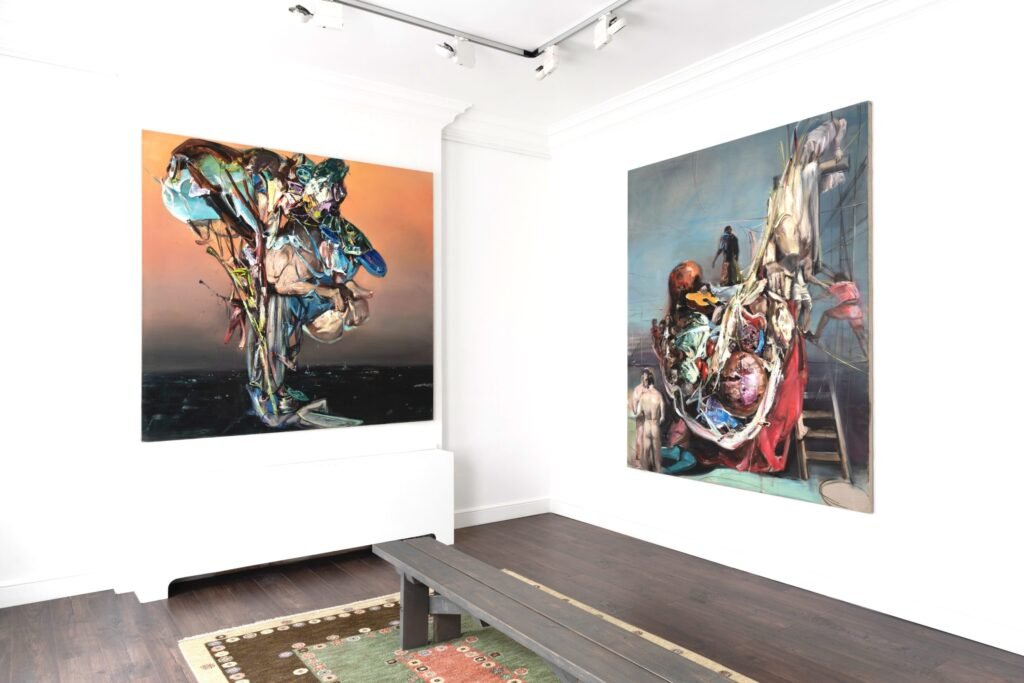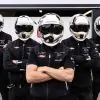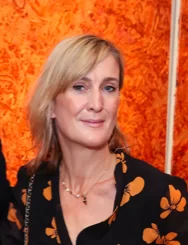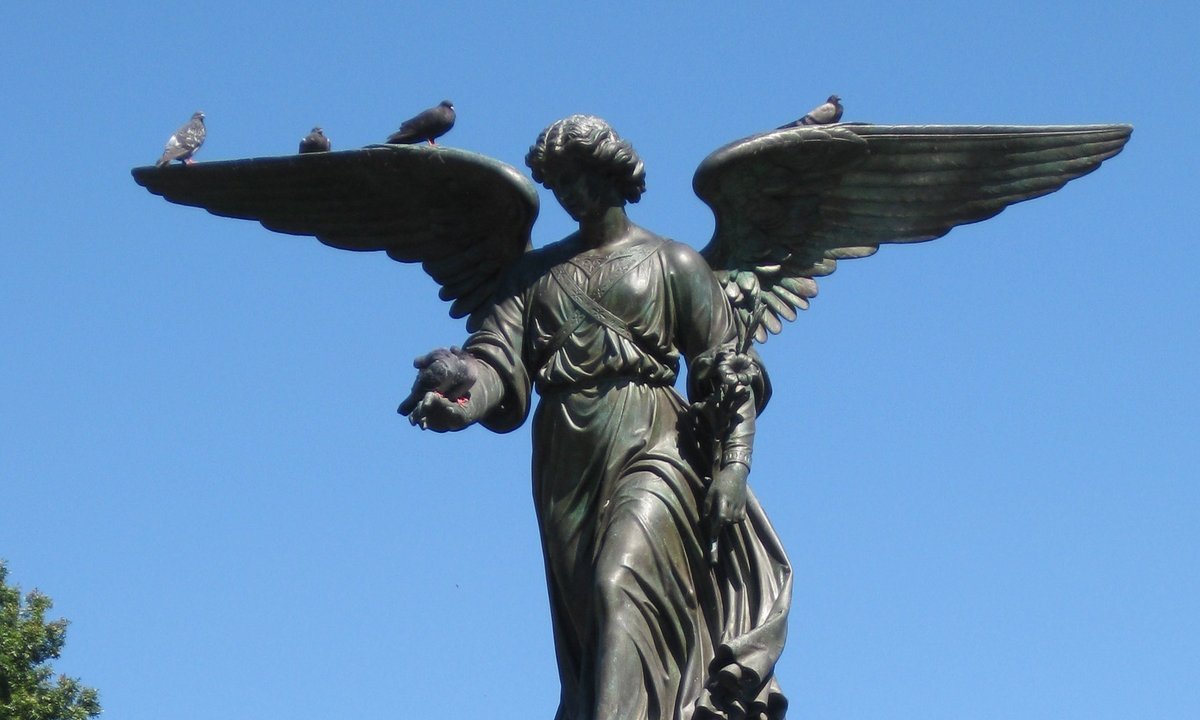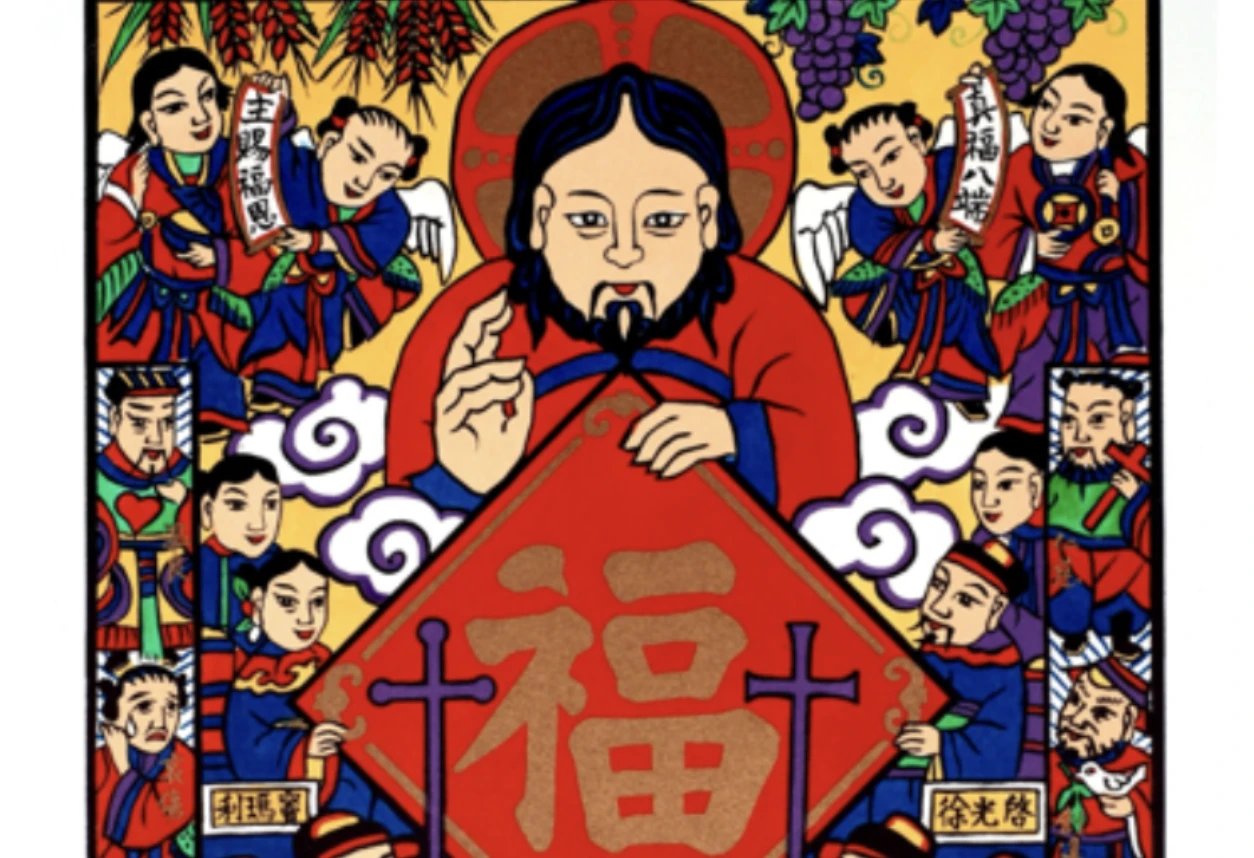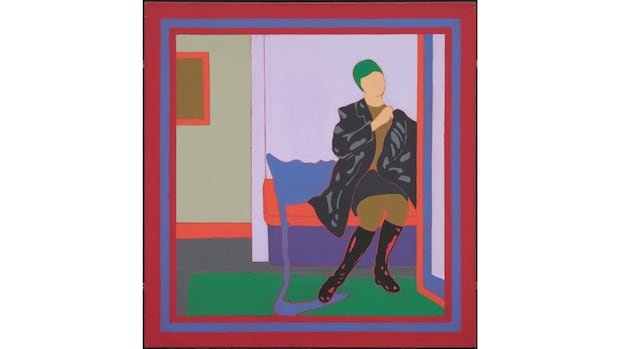Bulgarian artist Andreana Dobreva is exhibiting a powerful series of oil paintings referencing the migrant crisis at Fiumano Clase in London. ‘Public Grapes – Anonymous Meat’ takes its title from Georgian author Eteri Nozadze’s book Giganbishe Trauben, a Dadaist combination of art and poetry.
Dobreva’s paintings explore the geographical and cultural obstacles faced by hundreds of thousands of migrants around the world who are forced to flee their home country by war, climate change, political unrest or persecution. Dobreva herself is a migrant, born in Bulgaria where she studied classical painting, and now living and working in London after a period in Munich where she studied at the Academy of Fine Arts (Akademie der Bildende Kunste Munich).
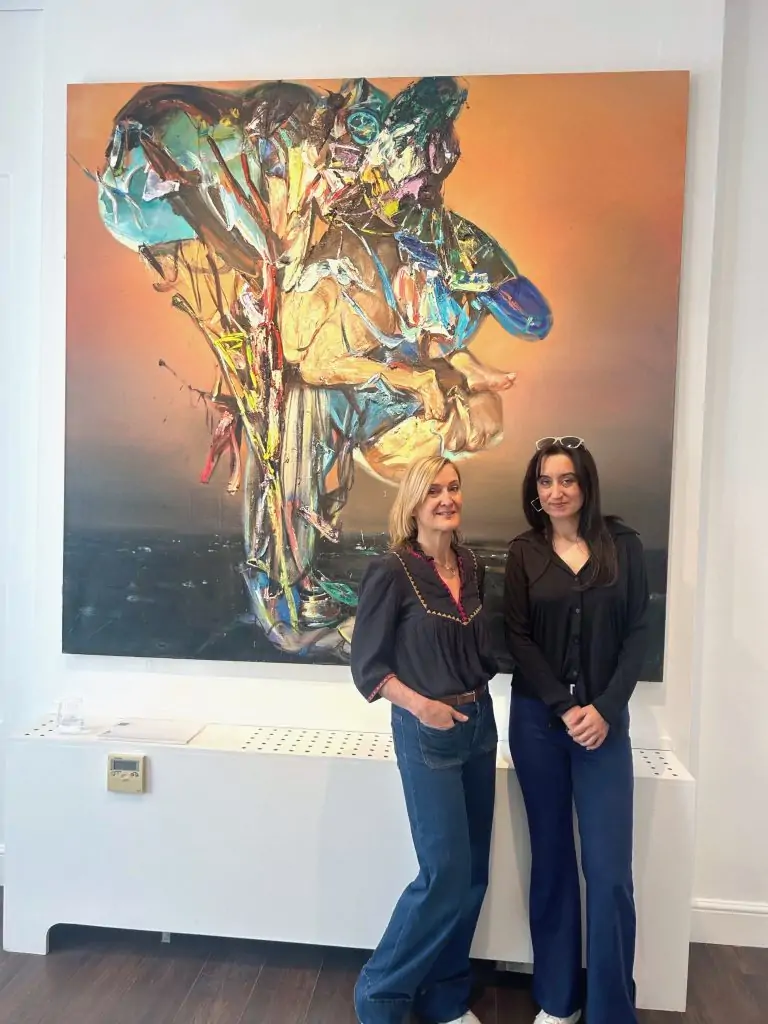

Credit Lee Sharrock
During her time in Munich, Dobreva spent 8 years working with refugees of many nationalities, teaching them German and helping them to resettle in their new home. Dobreva got to know the refugees and hear the stories, often traumatic, of the journeys they undertook to escape their country of birth and find freedom or a better life. She made sketches of the refugees and remembered their narratives, using them as inspiration for the exhibition at Fiumano Clase, which seeks to elevate the people she met and engage with their narratives in the form of vast abstracted figurative canvases.
She creates contemporary history paintings depicting tales of journeys endured and futures yet to be realised, such as ‘Field work II’, a large scale oil on canvas depicting a figure seen from behind embracing an abstract anonymous form, inviting the viewer to imagine their story. Her dramatic brushstrokes, abstracted figures and use of impasto lends the canvases a visceral feeling that evokes the drama of Gericault or Delacroix, with the primal undercurrent of Francis Bacon.
Andreana Dobreva was born in 1982 in Sliven, Bulgaria. Her solo exhibitions include; “Persephonium”, Lachenmann Art, Frankfurt: “Recent Paintings”, Emanuel von Baeyer Cabinet, “Against Nature” Heldenreizer contemporary, Munich. “Cancelled the Birds and Kept the Waves” , Heldenreizer contemporary, Munich. Her work has been featured at both TEFAF Maastricht and Frieze Masters London.
Lee Sharrock spoke to Andreana Dobreva at Fiumano Clase.
Lee Sharrock: The exhibition is a comment on the migrant crisis title is inspired by Georgian author Eteri Nozadze’s Dadaist book ‘Giganbishe Trauben’, which straddles art and poetry and is full of absurd words and grammar. Is ‘Public Grapes – Anonymous Meat’ a quote from the book, and is your art often inspired by literature?
Andreana Dobreva: All of my titles have been inspired by literature and initially I wanted to become a writer. Eteri Nozadze is a friend of mine. The somewhat meaningless title of the exhibition was meant to reflect those many narratives, that are simultaneously going on in my work. There are several paintings on this show, where you can find mentioning of migration. But other themes are present as well and they may not make a lot of logical sense. So, I decided for a title, that leaves the broadest possible range for interpretation.
Were you inspired by Vanitas paintings?
Andreana Dobreva: Yes. When I prepared this body of work, I was looking at Flemish still life paintings of the 17th Century a lot. Some of them were in the Wallace collection. It is inspiring how, despite all the display of opulence, riches and abundance, Flemish painters managed to insert a layer of deeper, philosophical meaning and find an interesting narrative. I think of Jan Weenix – his still Lifes are displaying dark themes, and the compositions stretch far beyond the still life.
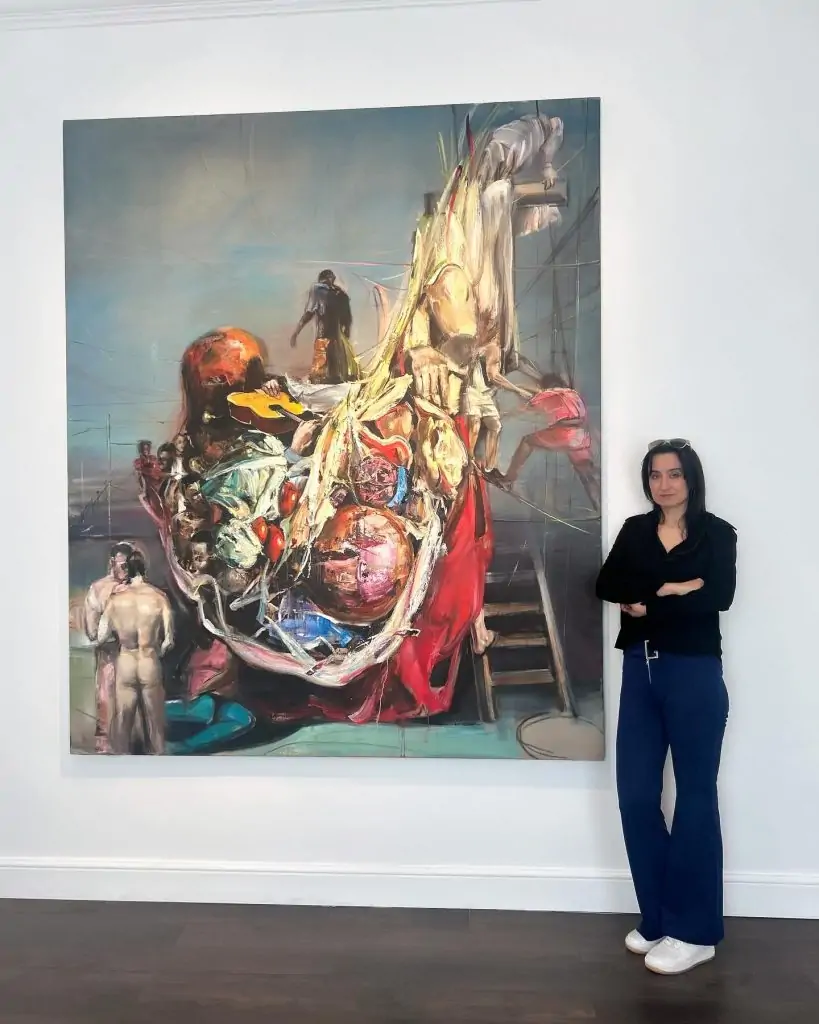

‘Public Grapes – Anonymous Meat’ is your comment on the absurdity and tragedy of the migrant crisis. You worked with refugees in Munich over a period of 8 years and depict their journeys in your paintings. How have you translated the stories of the refugees into your paintings?
Andreana Dobreva: I used to work with migrants from 2012 until 2019. Before I was admitted into the art Academy in Munich, I studied psychology. And I was particularly interested in migration. At the beginning I went to the shelters with a charcoal and paper and simply asked the people to sit a portrait for me. And this was our means of communication to begin with, because of a language barrier. As we got to know each other, I heard many stories, which were quite shaking for me. By the time those stories were still fresh in my head, I couldn’t reflect upon them. It took me years before I found a way to integrate them in my painting. Yet, the works in the exhibition combine many different narratives, not necessarily in a linear way.
The theme of the 2024 Venice Biennale is ‘Foreigners Everywhere’ and it’s been curated to include many migrant artists and artists from minority groups such as indigenous artists. So I think your exhibition has a relationship to the Biennale theme. Did you know the theme of the Biennale when you were making these works?
Andreana Dobreva: I wasn’t aware of the Biennale theme, when I’ve been working on this show. But it’s interesting to know that. When I see images of migrants in the media, it does something to me. It draws my attention stronger than any other topic.
You said you are inspired by Flemish Old Masters, but the drama of the paintings such as the sea crossing paintings remind me of Delacroix. Your paintings are really passionate and visceral, and the story behind them gives them a sense of urgency and pathos, in particular ‘Inverted Roots’ which tells the story of migrant sea crossings. There are hints of the Romanticism of Delacroix (‘Christ on the Sea of Galilee’ (1853) comes to mind) and influences of Dutch Golden Age painter Rembrandt (for example his ’The Storm on the Sea of Galilee (1633)). Yet you combine the influences of Old Masters with a bright contemporary palette and inject them with a hint of abstraction. What artists would you say influence you the most?
Andreana Dobreva: Every time I visit a new city, I would first visit the historical art museums and second the contemporary ones. But I look at everything. So, art history is simply part of my language. Besides that – I love Delacroix and Gericault. I have been also strongly influenced by Oskar Kokoshka, Karel Appel (Dutch) and many others.
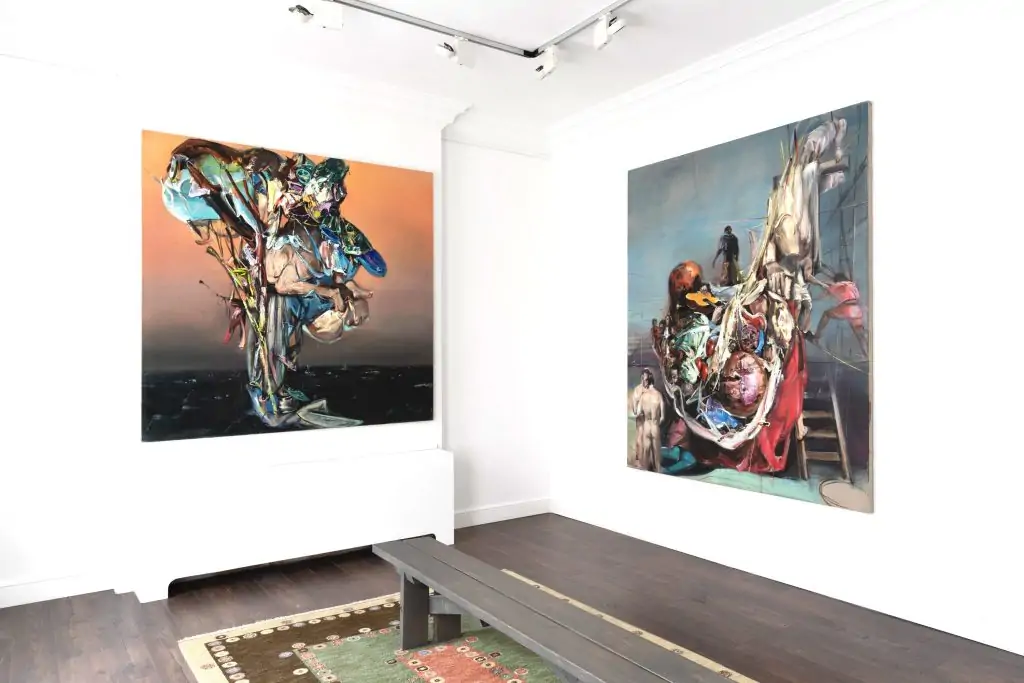

You had a classical training and studied painting in Bulgaria and in Munich at the Academy of Fine Arts. Do you always work with oils and what’s your process – do you make preparatory sketches before painting, and do you work from source material or from your imagination?
Andreana Dobreva: Yes, I usually work with solid preliminary – a long way of composing and searching for the image. the painting process is full of unpredictability. Oil is unpredictable and unfathomable medium. Just the physical part of it – the amount of impasto and how it behaves on the canvas.
Another interesting thing for me is how to implement the narrative. Because in art school in Munich, narrative was somewhat taboo. You could depict people and situations but please don’t tell us stories. Well, initially, I wanted to become a writer. And besides, I love taboos. So, it became my theme, how to make a narrative that isn’t telling a story.
Andreana Dobreva ‘Public Grapes – Anonymous Meat’ is at Fiumano Clase until 24th May: fiumanoclase.com
©2024 Andreana Dobreva

